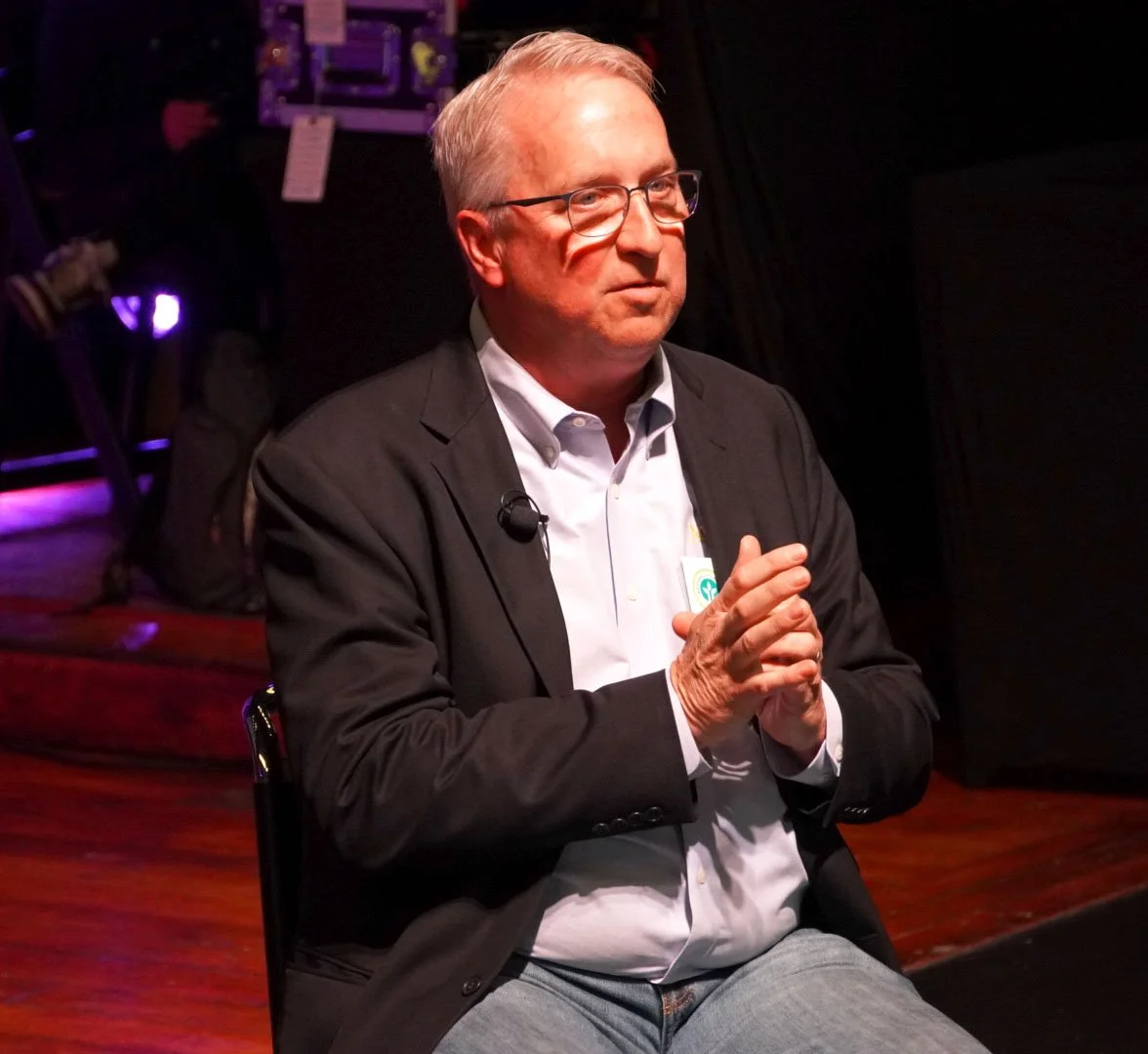Pitch Slam Keynoter John Foraker Sees Bright Future for Natural Products, Urges Investing in Industry
Photo by Bob Benenson
This is prime time for the better-for-you products industry, said the keynote speaker at Naturally Chicago’s Pitch Slam and Financing & Innovation Conference on May 21.
“The reason is that you have a confluence of a whole bunch of things,” he said. “One, consumers are way more educated about health and wellness, and every day they get more educated. You have amazing retailers... who have made these products widely available.”
These words might have sounded like a bit of hyperbole if they did not come from John Foraker, one of the most groundbreaking executives in the Natural and Organic Products industry.
Foraker built his reputation during his 10 years (2004-14) as CEO of the Annie’s Homegrown organic products brand, which resulted in General Mills’ $820 million purchase of the company.
After three years as President of the Annie’s operating unit at General Mills, he co-founded and became CEO of Once Upon a Farm, which is enjoying major success with its delicious, organic food products for babies and young children (partners in the company include Hollywood star Jennifer Garner).
The privilege of introducing Foraker went to Jessica Murphy, who has worked closely with him as Vice President at S2G Ventures. “He's known for his innovative approach and unwavering commitment to building leading healthier food businesses,” said Murphy, who serves on the Naturally Chicago Board’s Executive Committee to the role of Programming Chair.
She added, “He's a passionate advocate for social change and environmental sustainability, working to promote regenerative agriculture practices, and improve access to healthy food for all kids in all communities.”
Photo by Bob Benenson
Foraker began his presentation with a slide with logos of Annie’s, General Mills, and Once Upon a Farm, which he said summed up his career. It started in 1989 when he and other investors backed Annie Withey, whose Connecticut-based startup had found a local audience with its organic boxed macaroni-and-cheese kits.
“Specialty, Natural, Organic was vastly different then,” Foraker recalled. “Back then it was Natural Foods sections at the back of the store by the mop closet.” He said the vision was to build a brand that could mainstream organic, which was achieved along with other pioneering brands.
Yet Foraker added, with a touch of humility, that brand-builders should always strive to do even better. After stating that he is very proud of the work he and his “amazing” team did at Annie’s, he said, “What's amazing about this business is you can work out for a long time and you can learn from your mistakes. We could have done so much better.”
Foraker spent a constructive three years running the Annie’s brand from General Mills, a company of which he speaks highly.
But the entrepreneur urge took over after he met San Diego entrepreneurs Ari Raz and Cassandra Curtis, who in 2017 were seeking financing for a better-for-babies food company originally called Mother’s Garden and just recently re-branded as Once Upon a Farm.
Joined by Garner, they discussed “how screwed up our food system is” and pondered, “What if we could get everyone to join together on something brand new, trying to change the game for kids’ nutrition.”
Using the high-pressure pasteurization process, or HPP, they developed a variety of refrigerated products, packed with healthy fruits and vegetables, that met the ultimate test: Both babies and their parents loved the taste, and parents were gratified with the products’ nutritional value.
Then, in 2018, came the revelation that boosted Once Upon a Farm from healthy to spectacular growth. Market research determined that it wasn’t just for babies: 80 percent of their products were consumed by children ages 1 through 10. “We took ‘baby’ off the package, we made the packaging a lot bolder, a lot more playful,” Foraker said.
The impact: Sales velocities (the rates at which products move off store shelves) are 10 to 15 times higher than they were at that time. In a message to business start-up owners, Foraker added, “That's great, that's successful, and I think we have a bright future. But I want you to know that that work that happened in 2018, 2019, 2020 is the hard work of being entrepreneurs. That's where you make it work.”
Photo by Bob Benenson
Foraker concluded his keynote speech with a topic that has been much on his mind of late, asking investors to loosen their purse strings to support promising natural products companies.
The previous decade was a boom time for industry start-ups seeking capital. But when the COVID pandemic and its aftermath contributed to some significant busts, investors got gun-shy, and even highly thought-of enterprises have struggled to raise funds needed for growth.
Foraker believes strongly that this is counterintuitive and bad not only for emerging brands and consumers, but for the investors themselves.
“I hear a lot of chatter in this industry that just irritates the hell out of me... They can come up with reasons to poopoo this broader health and wellness trend. That is baloney. All these business categories are going to be dramatically bigger 20 years from now than they are today, let alone 10 and five. What you put on your body, what you put in your body and how you treat yourself. And so it's a perfect environment for entrepreneurs to be innovating against. I'm not saying it's easy... But you're in a big, long-term secular growth trend that is nowhere near tapping out there.”
He concluded, “I just want to underscore that organic, health and wellness, better-for-you is the place to be.”
Photo by Bob Benenson




